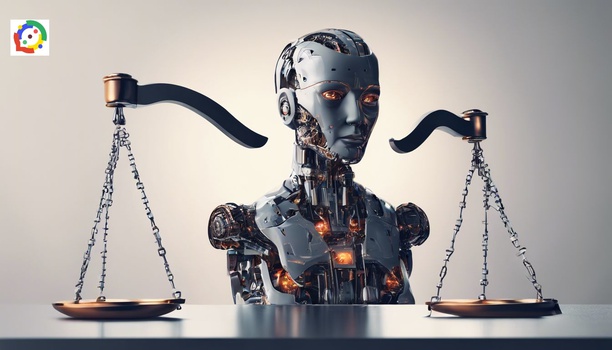New 2023 EU AI Regulations and Guidelines: Everything You Need to Know
Artificial Intelligence (AI) is advancing at a rapid pace, and with its growth comes the necessity for regulations and guidelines to ensure ethical and responsible use. The emergence of new EU (European Union) AI regulations and guidelines signifies a crucial milestone in ensuring ethical and responsible AI deployment.
These measures are pivotal in establishing a framework that addresses the ethical, legal, and societal implications of AI technologies. By setting clear guidelines, governments and regulatory bodies aim to foster trust and accountability, creating an environment where businesses can confidently innovate and deploy AI solutions while prioritizing ethical considerations.

These regulations serve as a safeguard against potential misuse of AI, reinforcing the importance of transparency, fairness, and data privacy in the development and deployment of AI technologies. The emphasis on regulations and guidelines underscores the imperative of harmonizing technological advancement with ethical considerations, positioning businesses to thrive within a framework of responsible AI use.
This blog aims to provide a comprehensive overview of the new AI regulations and guidelines, covering everything you need to know about their implications and implementation.
We will discuss:
Why we need regulations for artificial intelligence
The 2023 EU AI Act
Implications for AI development and deployment
Guidelines for ethical AI practice
Why We Need Regulations for Artificial Intelligence
We need AI regulations to address the ethical, legal, and societal challenges posed by the use of AI technologies. Regulations need to cover a wide range of areas, including data privacy, algorithmic transparency, accountability, and bias mitigation. At the same time regulations must not hamper technological innovation and find an acceptable balance between safety, ethical use of new technology and enabling technological innovation.

Key elements that AI regulations should cover:
Transparency in AI decision-making processes
Accountability for AI-driven outcomes
Data privacy and protection
Algorithmic fairness and bias mitigation
Compliance with existing legal frameworks
The unveiling of OpenAI’s ChatGPT last year served as a catalyst, thrusting the burgeoning AI domain into the forefront of public consciousness and prompting substantive conversations surrounding its ethical and regulatory imperatives.
The 2023 EU AI Act 2023
The EU AI Act, formally titled the "Regulation of harmonized rules on artificial intelligence," is an initiative put forth by the European Commission, European Parliament (EP) and the European Council with the objective of overseeing artificial intelligence (AI) and its implementations within the European Union. The initiative emphasizes the promotion of innovation and competitiveness in the European market, while also prioritizing the responsible and ethical utilization of AI.
The EU intends to establish an overarching framework that rallies industry leaders, governmental bodies, academic institutions, and civil society organizations in advocating for the conscientious development and deployment of transparent, inclusive AI systems on a global scale.
“The AI Act adopts a 'risk-based approach' to the regulation of products or services utilizing artificial intelligence, prioritizing the oversight of AI applications over the technology itself. This legislation aims to safeguard democracy, uphold the rule of law, and protect fundamental rights such as freedom of speech, all while fostering a climate of investment and innovation.”

It's important to note that the EU AI Act is a proposed regulation and may undergo revisions before becoming law. If enacted, it would have a significant impact on the development and use of AI systems within the European Union.
Key aspects of the EU AI Act proposal include:
1. Classification of AI systems
The Act categorizes AI systems into different risk levels based on their potential impact, such as minimal risk, limited risk, and high risk. Different regulatory requirements apply to each category. Different applications of AI may include autonomous transportation, healthcare, aviation, financial services, law enforcement, spam filters, video games, governmental social scoring, real-time biometric identification systems, scraping, market surveillance, conformity assessments, facial recognition databases etc.
2. Requirements for high-risk AI systems
Strict requirements are proposed for high-risk AI systems to ensure transparency, accountability, and safety. This includes data quality, human oversight, documentation, and testing procedures. Certain AI systems, such as low-risk applications like spam filters and video games, are permissible with minimal requirements, predominantly centered around transparency obligations.
In compliance with regulatory measures, tech enterprises operating within the EU will be mandated to provide transparency regarding the data utilized for AI system training and the rigorous testing procedures for products, particularly those deployed in critical areas like autonomous transportation and healthcare.
Conversely, AI systems categorized as posing an unacceptable risk, including governmental social scoring and real-time biometric identification systems in public domains, are subject to stringent prohibition with minimal exceptions.
3. Prohibition of certain AI practices
The Act prohibits certain AI applications that are considered a clear threat to safety, fundamental rights, or equality, such as social scoring and real-time biometric identification systems. The EU AI Act bans biometric systems that identify people using sexual orientation and race, and the indiscriminately scraping faces from the internet.
Indiscriminate scraping of images from the internet or security footage for the purpose of creating facial recognition databases. Notably, exemptions have been introduced to accommodate the use of "real-time" facial recognition technology by law enforcement agencies for the investigation of terrorism and serious crimes.
These regulatory developments emphasize the imperative for businesses to stay informed and compliant with the evolving AI guidelines to ensure ethical and legal deployment of facial recognition technologies.
4. Compliance and enforcement
It outlines measures for market surveillance, conformity assessments, and the establishment of a European Artificial Intelligence Board to ensure compliance with the regulation. If Tech firms break the law, they may pay fines of up to seven percent of global revenue, depending on the merits of the case.
Implications for AI Development and Deployment
These regulations mandate transparent AI systems, necessitating IT firms to prioritize explainability and ethics in their AI model development to align with legal and ethical standards. The guidelines aim to reinforce data privacy and security, compelling IT firms to reevaluate their data handling and encryption practices to mitigate regulatory risks and uphold consumer trust.
The regulatory environment presents both challenges and opportunities for IT firms venturing into AI development and deployment. While compliance requirements may introduce complexity, they also foster innovation by promoting responsible AI practices.

IT firms must adapt to the evolving regulatory landscape by integrating regulatory compliance as a core element of their AI development strategies, fostering a culture of diligence and responsibility in line with the new legal parameters. This shift towards compliance-centric development not only mitigates regulatory risks but also augments the trust and confidence of clients and stakeholders in the ethical deployment of AI solutions.
This may involve revisiting data collection practices, refining algorithmic decision-making, and establishing mechanisms for transparent accountability.
Guidelines for Ethical AI Practice
In addition to the regulations, governing bodies have established guidelines for ethical AI practice. These guidelines serve as a supportive framework for implementing the regulations and fostering a culture of responsible AI development and deployment. As organizations across various sectors continue to integrate AI technologies into their operations, understanding and adhering to ethical guidelines is crucial.
Ethical AI practices encompass a wide range of considerations, including transparency, accountability, fairness, and privacy. Embracing ethical guidelines for AI not only strengthens corporate integrity but also positions businesses at the forefront of responsible AI innovation, fostering sustainable relationships with customers, partners, and regulatory authorities.
Principles of Ethical AI Practice
These guidelines emphasize the responsible deployment of AI systems, ensuring that they operate within the bounds of legal and ethical frameworks. By proactively addressing ethical AI concerns, businesses can foster trust, mitigate risks, and demonstrate a commitment to upholding ethical standards in the development and application of AI technologies.
The ethical AI guidelines revolve around the following core principles:
Beneficence: AI should be designed to benefit individuals and society.
Non-maleficence: AI systems should not cause harm or detriment.
Autonomy: Respect for individual autonomy in AI interactions.
Justice: Fairness and equitable access in AI systems.
Transparency: Openness and transparency in AI design and operation.
Integration of Ethical Principles
Integrating these ethical principles into AI development requires thoughtful consideration at every stage of the process. From design and training to deployment and monitoring, adherence to ethical guidelines is essential to ensure AI systems are aligned with societal values and norms.
Establishing clear protocols for data privacy, bias detection, and ethical decision-making within AI systems is essential for maintaining ethical standards. Businesses must prioritize ongoing education and training to empower employees with the knowledge and skills necessary to uphold ethical AI practices.
Get the new EU AI Act
Download from this link: https://mobilegpt.ams3.cdn.digitaloceanspaces.com/uploads/other/EU_AI_Act_2023.pdf









